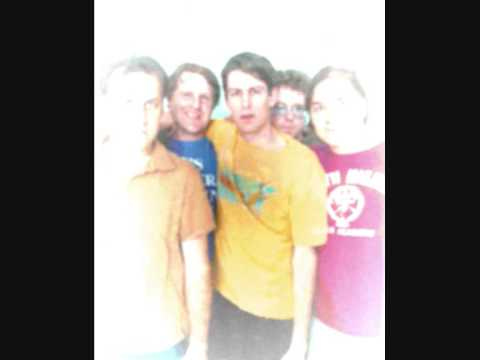Pavement’s lyrics can lean to the incomprehensibly silly and/or juvenile–as a result you shouldn’t be blamed for viewing Pavement as mostly a band about the sound, not the meaning behind it. One of my dear music friends says this is enough–that a song’s sound is its meaning. That is how it makes you feel. Since I am writing a Substack analyzing individual song lyrics, I would clearly demur. To me a great song not only sounds great but also offers a certain depth of meaning; it makes you think. It says something new lyrically. It is poetic or confrontational or raises issues, points to problems. A great song is unique.
I would argue there is much more to Pavement than meets the eye. Take “In the Mouth a Desert,” one of the many gems from 1992’s Slanted and Enchanted, perhaps their best album. Here we have a song that carries loads of inherent ambiguity throughout and yet it also seems to be about something more than one can easily discern. Pavement’s lyrics are often nonsensical and offer riddles and paradoxes; this is not unusual. But in “In the Mouth a Desert” the lyrics point to a real pickle.
The title of this song is so ambiguous it could be about anything truly (the 1990s are known for this kind of surrealistic sidestep–think R.E.M., Beck, Cocteau Twins). I remember buying Slanted and Enchanted at Borders a year or two after it appeared–I hadn’t really delved into Pavement when the album came out, for no particular reason. There were just plenty of other bands within the same framework to listen to at the time–and 1992 was not aesthetically wobbly 2023. I just didn’t really fall into the Pavement crowd at the time. But for me, now, “Desert” is so evocative of a specific era it runs goose bumps down my arm each time. The almost makeshift 1992 lo-fi sound of Pavement is completely sodden with the tortured grapplings of young people. They seem to be making up the rules as they go (I will never forget a review of Pavement claiming their guitarwork sounds like vacuum cleaners running in the living room). Nothing about this song is slick or planned or particularly purposeful even. It is a wending speech, a bull session–a rambling show and tell. Even now I challenge any listener to stake a firm claim regarding what the song really means. I enjoy popping in from time to time on Reddit or onto Songmeanings.com to witness the chaos Malkmus inspired.
But enough preamble. Here goes: to me “Desert” is a pure dramatic monologue actually. If you listen close enough (“you” addressed throughout) the speaker touches mostly on the disconnect between expectations and desire. The person on the receiving end takes the speaker for granted–can you treat it like an oil well? Tapping the well for whatever is needed–a walking, talking commodity. The conflict could be something in the sexual domain, but I don’t think so–it seems that the lyrics of “Desert” refer to trust and faith that the other views as unlimited and ceaseless. Shit or get off the pot, the speaker suggests. No matter what they do his faith will be there. The speaker asks for a trust knot–some kind of promise, something to bank on. But that knot might easily unravel into a ball of twine. He wants to make the listener at least try. Make an effort. Meet me halfway.
All the speaker has are his diamond sharp words (no humble brag there). As the King of Id, he is ruled by his basest impulses or is at least most aware of them. But he knows better–as we all do. He wants to transcend his animalistic limitations. This leads us to the title of the song–”In the Mouth a Desert.” To me this conjures an image of sitting at the dentist’s office, my mouth dry from some routine procedure. But more likely Malkmus means a kind of nervousness at broaching the subject of trust and perhaps, dare I say, even commitment. There is nothing nervous-sounding about this song exactly, but perhaps that’s the irony. The song pretends to be “hard” while simultaneously offering up a soft underbelly. Beneath the shield, a beating heart.
The dominant imagery in “Desert” is that of rope/string. Trust knots. Twine unraveling. The idea of this song, both in terms of the lyrics but also the muddy seriousness of guitar and bass, is that these two people are connected, bound together whether they like it or not. However, all connections can unravel. Id rules: “Id is all we have.” Let’s get real, this song suggests. Embrace instinct. Isn’t this much of what rock and roll offers us? Connection, one animal to the next. We are the same, you and I, this song suggests. This is a “come to Jesus” song–a truth-telling mission. Time to face the music. Here it is, right now. I’m nervous, but so what? Here goes.


